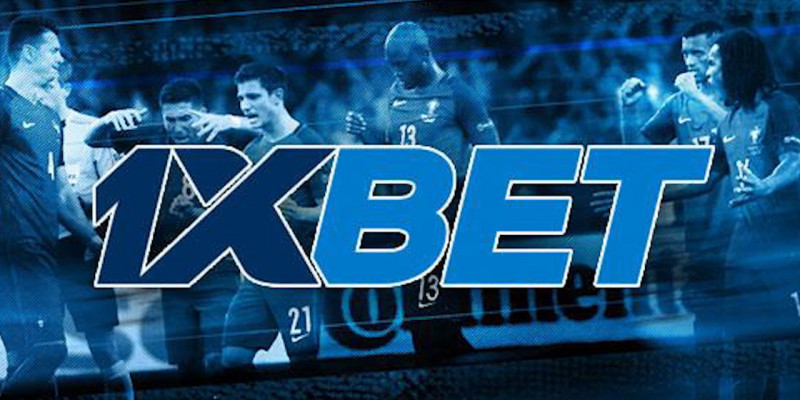
The rise of smartphones, live streaming and sophisticated odds-making algorithms has transformed how people engage with wagering, turning what used to be a specialist pastime into a global online industry. For those looking to dive in or to sharpen their approach, the landscape can seem overwhelming — a fast-moving market of promotions, markets, and mobile apps. If you are using an iPhone and considering installing a platform client to keep pace with live markets, one resource to explore is online betting 1xbet download ios, which illustrates how modern operators focus on on-the-go access, diverse product lines and continuous engagement.
Understanding online betting begins with distinguishing between the principal product types: sports betting, esports, casino games, live dealer tables, and virtual sports. Each vertical attracts a slightly different audience and requires distinct skills. Sports bettors, for example, rely on statistical analysis, matchup knowledge and situational factors such as injuries and weather. Casino players focus on game rules, variance, and house edge. Esports betting often demands familiarity with rapidly evolving titles and patch impacts. Identifying where your knowledge and temperament fit best is step one toward consistent, sustainable play.
Selecting a modern bookmaker or betting app is part art and part science. Look for transparent odds, competitive margins, a wide range of markets, and secure payment options. Licensing and regulation are critical: reputable operators display licensing information and comply with local laws, including age verification and anti-money-laundering procedures. Customer support responsiveness, withdrawal times, and the terms attached to bonuses and free bets can dramatically affect overall value. Comparing several platforms and reading independent reviews helps reveal differences that matter in practice.
Bankroll management is the cornerstone of long-term success. No strategy can remove variance, but disciplined money management can preserve capital and reduce emotional decision-making. Many experienced bettors use a flat-stake model, staking a fixed percentage of their bankroll on each bet (commonly 1–5%). Others prefer a Kelly Criterion-style approach that adjusts stake size based on perceived edge; however, this requires accurate estimations of probability and is more volatile. Whatever method you choose, commit to predetermined staking rules and avoid chasing losses or inflating stakes after wins.
Value finding is the intellectual heart of professional betting. Value exists when the implied probability of the bookmaker’s odds underestimates the true likelihood of an outcome. Developing a consistent method for estimating probabilities — whether through models, historical trend analysis, or domain expertise — allows you to identify positive expected value (EV) opportunities. Keep detailed records of bets, odds, stakes and outcomes to measure edge over time. Data-driven bettors refine models iteratively, using feedback loops to correct biases and improve predictions.
Live betting and cash-out features highlight how technology has reshaped the field. Live markets move quickly and offer chances to exploit in-play inefficiencies, but they also increase the cognitive load and emotional intensity of decision-making. Trading positions using cash-outs or hedging bets can lock in profit or limit loss, but these tools come at the cost of sometimes unfavorable pricing. A prudent strategy is to set strict rules for in-play activity — for example, only trade within certain minutes of a match or adhere to specific liquidity thresholds — to keep the process manageable.

Bonuses and promotions are attractive entry points for new players, but they require careful reading. Wagering requirements, odds restrictions, time limits and eligible markets can reduce the real value of a bonus. Treat promotions as supplementary to your core strategy rather than a replacement. If a welcome offer aligns with your regular play and you can meet the terms without overexposure, it can be beneficial. Otherwise, prioritize operators whose base odds and service levels suit your objectives.
Regulation and taxation vary widely by jurisdiction and materially affect how you approach wagering. Some countries prohibit certain forms of betting or impose high taxes on winnings, while others embrace liberal licensing regimes that foster competition and innovation. Always confirm local legal requirements before registering or depositing funds. In regulated markets, responsible gambling features—such as deposit limits, self-exclusion and reality checks—are increasingly standard and should be used proactively to maintain healthy habits.
Technology continues to drive the industry forward. Machine learning and predictive analytics help bookmakers set more efficient odds and help savvy bettors spot patterns that might not be obvious to the market. Blockchain and provably fair systems have carved a niche in casino and niche betting, promising transparent randomness and immutable records. Meanwhile, mobile-first design and progressive web apps prioritize seamless live streaming, instant cashouts and personalised promotions. Staying informed about technical trends helps you anticipate changes in market behavior and available tools.
Responsible gambling must be central to any conversation about online wagering. The ability to bet 24/7, receive instant deposits and access a near-infinite slate of markets increases the risk of impulsive behavior. Establish clear limits on time and money, treat betting as entertainment rather than income unless you operate with professional discipline, and seek help if activity becomes problematic. Many operators and independent organizations offer self-assessment tools and support resources — use them without delay if you notice warning signs like chasing losses, secretive behavior or neglecting other responsibilities.
Developing a personal betting philosophy will make decision-making easier in the long run. Decide whether you prefer analytical model-driven betting, targeted situational plays, arbitrage and trading, or recreational low-stakes engagement. Each approach requires different skills and emotional tolerances. Define success metrics beyond short-term wins: measure your edge, track return on investment (ROI), and evaluate volatility. Continuous learning — reading books, following industry analysts, and participating in communities — accelerates progress and helps you adapt to changing markets.
Finally, balance is essential. Betting can be intellectually rewarding and socially engaging but should not displace core life priorities. Allocate only disposable income, diversify leisure activities, and be ready to step back when the fun diminishes. For those who approach online betting with preparation, discipline and respect for risk, it can remain a stimulating pastime. For everyone else, the safest choice is moderation and the use of available safeguards to maintain control.
By combining careful platform selection, disciplined bankroll management, a search for positive EV, and a commitment to responsible play, participants can navigate the complex world of online betting more confidently. The environment will continue to evolve with technology and regulation, but the fundamentals of thoughtful, risk-aware wagering remain constant.

コメント